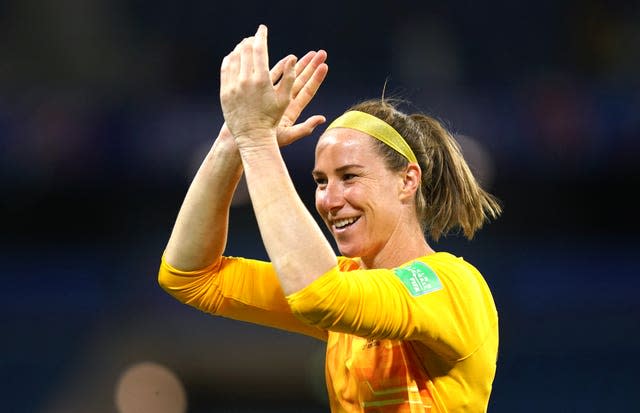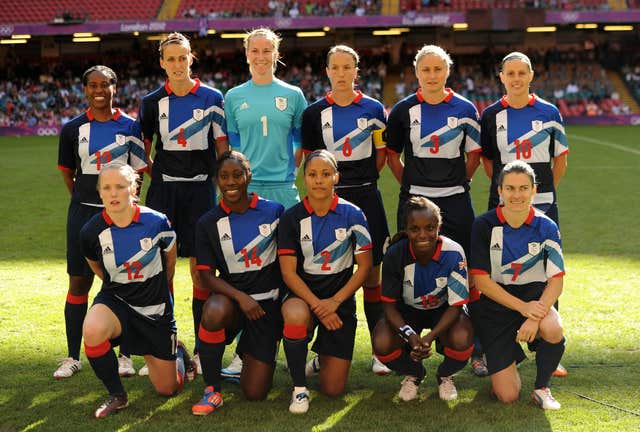Man City goalkeeper Karen Bardsley admits retirement decision has yet to sink in
Karen Bardsley admits her impending retirement is yet to fully sink in, although the Manchester City goalkeeper is already looking towards furthering women’s football off the field.
A frustrating past few years dealing with hamstring injuries, accompanied by multiple operations and long stretches on the sidelines has convinced the 37-year-old to end her career at the end of this season.
The issue has plagued Bardsley since the 2019 World Cup, but she has had more than a decade at the top level, helping City win eight trophies, including their maiden Women’s Super League title in 2016.

Capped 82 times by England, Bardsley will officially bring the curtain down with a watching brief when City face Chelsea in the FA Cup final at Wembley on May 15 – even if she struggles to accept the fact.
“It’s still not really sunk in,” said Bardsley, who joined City at the end of the 2013 season. “I don’t think it’s going to sink in until the very end of the year and the very end of the contract.
“The game at Wembley is going to be the last big event but I’m still going to be going into the club for my physio, so until all that comes to a close, it’s just going to feel like a super long off-season.
“The most emotional moment for me was when I made the announcement to the girls and the coaching staff in the auditorium at the training ground. To have to walk in there and stand up in front of everyone and say ‘hey guys, I’m retiring and never going to play football’. That hit me, I got really choked up.
“The day after the FA Cup is going to be weird. Hopefully I remember everything, but it’s going to be really strange. I think that drive home the next day is going to be really weird.”
As sad and strange as it is to be stepping away from something I’ve committed my life to so far, ultimately it’s something I’m really proud of. I can honestly say, hand on heart, that I’ve left no stone unturned and I have no regrets. 1/2 pic.twitter.com/c2SYhZu3Uk
— KAREN BARDSLEY (@klbardsley) May 2, 2022
Bardsley helped England go all the way in the 2019 SheBelieves Cup and featured in three World Cups and two European Championships, while she was a proud Team GB representative at London 2012.
United States-born Bardsley commemorated the occasion by getting a tattoo of the Olympic rings on her left wrist, having pledged to high school friends years earlier she would if she ever got the chance to compete at a Games.
Team GB’s run to the quarter-finals left a lasting impact on her, and she said: “It was my first experience and so far the only experience in true parity. It wasn’t even a matter of getting paid this, it was a matter of the resources being split equally.
“The men’s team and the women’s team did everything exactly the same, I thought that was incredible and it really opened my eyes to how things should be.
“We stayed in the same hotels, had the same meals and mealtimes together and shared the same training venues. We got to know each other and at the end of the day we’re footballers with shared experiences.

“That was the stepping off point for women’s football and I just hope in terms of parity we get back to that moment again. It’s really hard to explain how it felt, but it felt right.”
In 2020, Bardsley become the first professional footballer to sit on a County FA’s Board of Directors after being appointed independent non-executive director for women and girls’ football in Manchester.
A fundamental aim was to continue the growth of women and girls’ participation in football in the city and Bardsley says the role opened her eyes to “what making a difference on a bigger scale feels like”.
While Bardsley detailed the enormous changes that have taken place across her career – when she started the back-pass rule was non-existent in women’s football – she believes there is still a way to go.
“A lot of it is around the general respect for the game and the players, that’s probably something I’d like to see change a bit more,” added Bardsley.
“If there’s a big opportunity for a game or a tournament, it should be in terms of parity. There’s no reason in my eyes that a men’s tournament should be any different to a women’s or vice versa.”

 Yahoo Sport
Yahoo Sport 





































